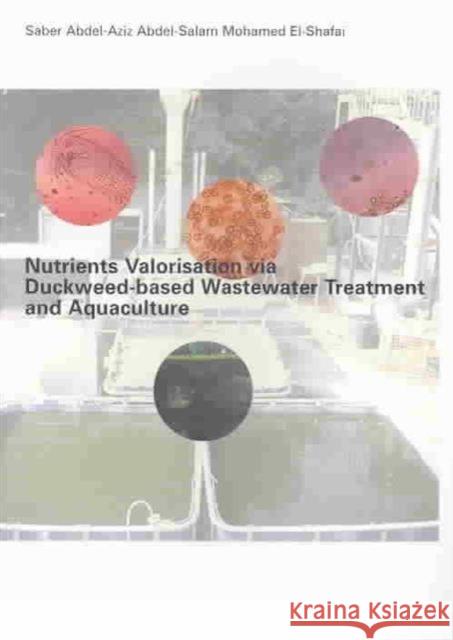Nutrients Valorisation Via Duckweed-Based Wastewater Treatment and Aquaculture » książka
Nutrients Valorisation Via Duckweed-Based Wastewater Treatment and Aquaculture
ISBN-13: 9789058096562 / Angielski / Miękka / 2003 / 184 str.
Development of a sustainable wastewater treatment scheme to recycle sewage nutrients and water in tilapia aquaculture was the main objective of this PhD research. Use of an integrated UASB-duckweed ponds system for domestic wastewater treatment linked to tilapia aquaculture was investigated. The treatment system was efficient in organic matter removal during the entire year, while nitrogen, phosphorus and faecal coliform removal were negatively affected by the decline in temperature in winter. Most of the nitrogen removal was achieved by plant uptake (81%) while 14.5% and 4.5% of the removal was due to denitrification and sedimentation, respectively. The treatment system provided effluent quality and duckweed biomass suitable to reuse in tilapia aquaculture. The nutritional value of fresh duckweed was significantly better than for wheat bran and simular to the commecial feed when used in combination with treated sewage from the duckweed ponds. This research was carried out with financial support of the Dutch government within the framework of the SAIL funded "Wasteval" project (LUW/MEA/971) and is the result of a cooperative effort of the Water Pollution Control Department of the National Research Centre in Cairo, Wageningen University and Research and the UNESCO-IHE Institute for Water Education.











